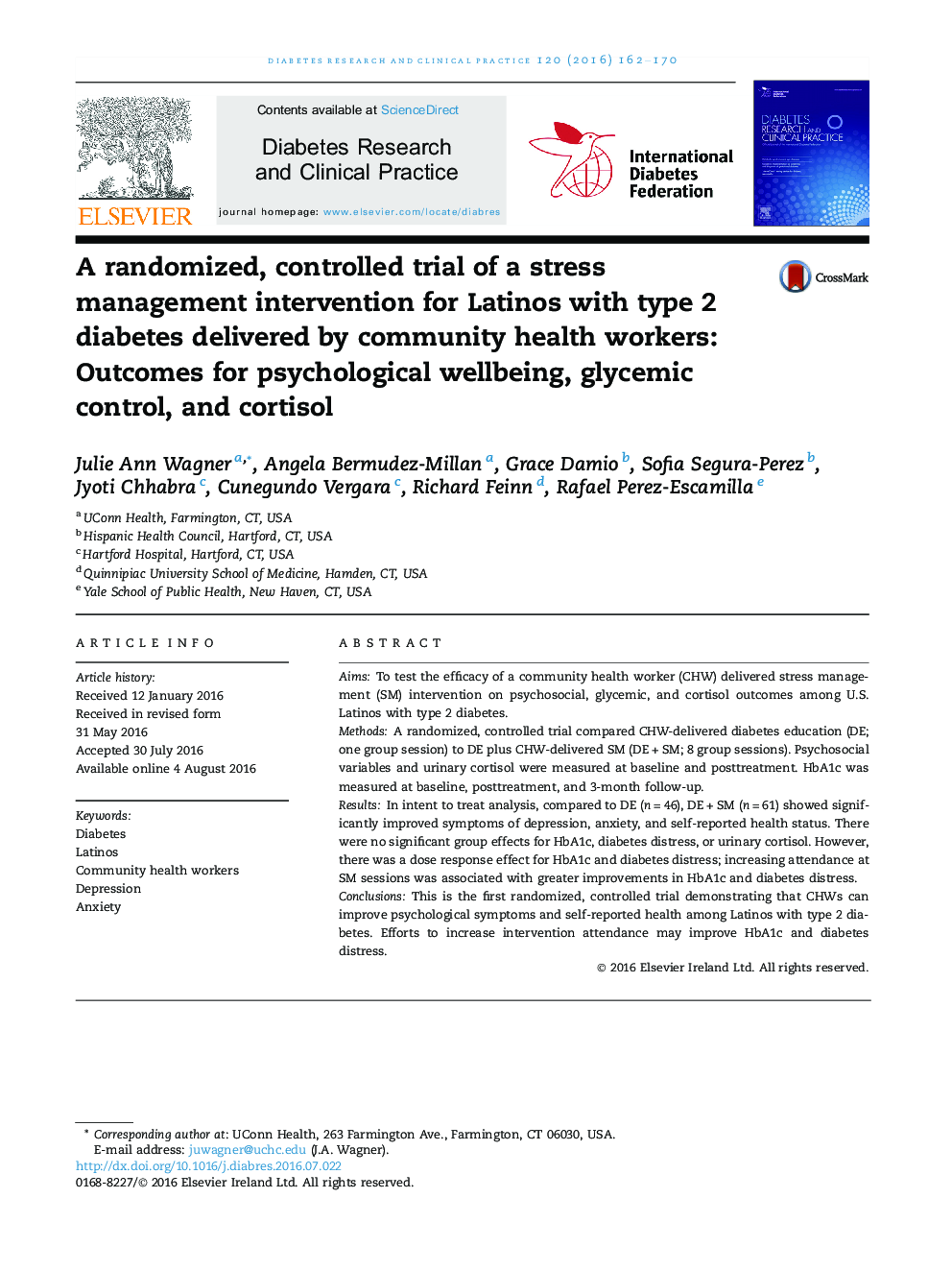| Article ID | Journal | Published Year | Pages | File Type |
|---|---|---|---|---|
| 2796142 | Diabetes Research and Clinical Practice | 2016 | 9 Pages |
•No RCTs have tested psychosocial interventions delivered by community health workers for people with diabetes.•We randomized Latinos with diabetes to diabetes education alone or diabetes education plus stress management.•CHWs delivered both interventions.•Stress management improved depression, anxiety, and self-reported health.•Higher attendance at stress management was associated with greater decreases in A1c and diabetes distress.•This study expands the role of CHWs in treating patients with diabetes.
AimsTo test the efficacy of a community health worker (CHW) delivered stress management (SM) intervention on psychosocial, glycemic, and cortisol outcomes among U.S. Latinos with type 2 diabetes.MethodsA randomized, controlled trial compared CHW-delivered diabetes education (DE; one group session) to DE plus CHW-delivered SM (DE + SM; 8 group sessions). Psychosocial variables and urinary cortisol were measured at baseline and posttreatment. HbA1c was measured at baseline, posttreatment, and 3-month follow-up.ResultsIn intent to treat analysis, compared to DE (n = 46), DE + SM (n = 61) showed significantly improved symptoms of depression, anxiety, and self-reported health status. There were no significant group effects for HbA1c, diabetes distress, or urinary cortisol. However, there was a dose response effect for HbA1c and diabetes distress; increasing attendance at SM sessions was associated with greater improvements in HbA1c and diabetes distress.ConclusionsThis is the first randomized, controlled trial demonstrating that CHWs can improve psychological symptoms and self-reported health among Latinos with type 2 diabetes. Efforts to increase intervention attendance may improve HbA1c and diabetes distress.
